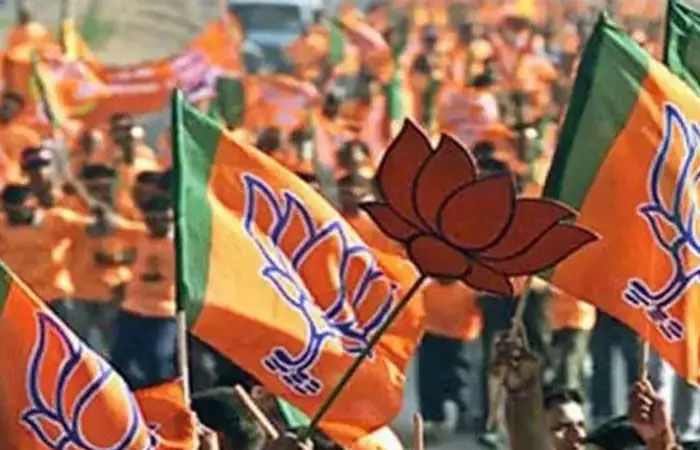33 districts to get presidents, BJP faces internal ruckus after 1,300 applications

Amid the internal skirmishes in the Bharatiya Janata Party (BJP), the recent call for names of aspirants to fill 41 positions as district and city presidents in 33 districts and 8 cities has created a stir within the party.
The demand for leadership roles has reached unprecedented levels, with 1,300 aspirants vying for 41 president positions. This has amplified discussions among veteran BJP leaders about the growing factionalism and opportunism within the party.
As efforts to select city and district presidents continue, the central leadership has become active in assessing the true internal dynamics of the Gujarat BJP.
The upcoming elections for 72 municipalities, 92 taluka panchayats, the Junagadh municipal corporation, and the Kheda district panchayat make this process all the more significant. It is speculated that this could be the first episode of internal battles ahead of these crucial elections.
Ahead of local body elections, the BJP has completed organisational restructuring in Gujarat, with a focus on appointing fresh faces capable of leading effectively at the district and city levels.
However, the staggering number of 1,300 contenders for these 41 positions underscores the intense competition within the party.
The selection process is expected to culminate with the announcement of district and city presidents before Uttarayan (January 14), followed by the declaration of the state president’s name by January 20.
Senior BJP leaders, while refraining from public criticism, lament that holding a leadership position in the BJP was once considered a responsibility.
Prime Minister Narendra Modi introduced the concept of ‘Samras Panchayat Scheme’ where villages elect a leader collectively. Incentives are provided to such panchayats.
However, this philosophy seems absent within the BJP itself, where consensus in leadership selection is rare.
The BJP’s internal factionalism has reportedly become a public issue, evident in controversies such as the Morbi bridge contract and Harni boat tragedy.
With elections approaching, the selection of district and city presidents resembles a competitive internal election, exposing growing divides within the party. Leaders from older generations express concerns about the erosion of the BJP’s core values, as the pursuit of power overshadows public welfare.
They fear that the focus on personal gains is diminishing the party’s once-esteemed reputation as a disciplined and service-oriented organisation.
While the BJP continues to ride on its electoral success, the internal dynamics of factionalism and opportunism highlight a stark departure from its founding principles.
The party now faces the challenge of balancing power, organisation, and discipline to sustain its long-term credibility.
Also read:

